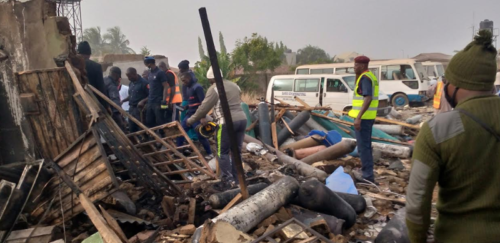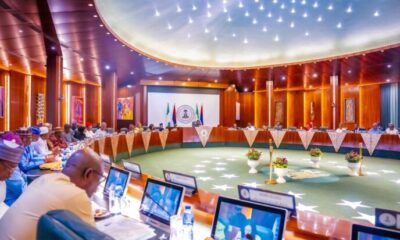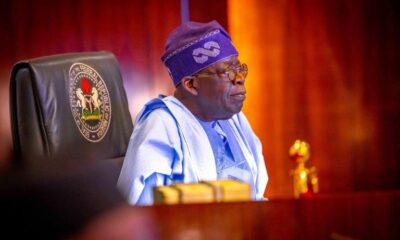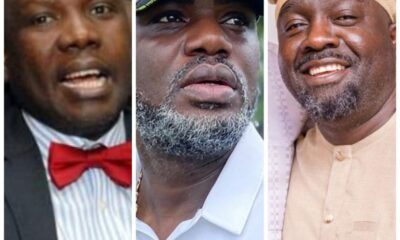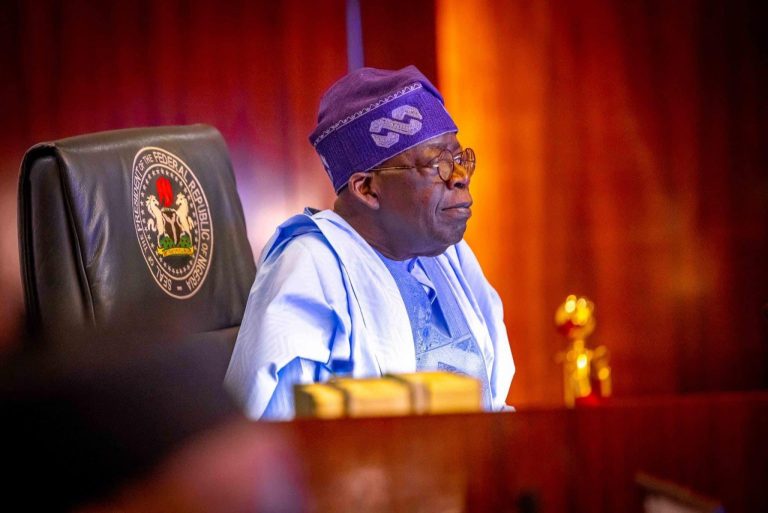The Arewa Consultative Forum, a pan-northern socio-political organisation, demanded the removal of Major-General V.U. Okoro, the General Officer Commanding One Division of the Nigerian Army, Kaduna, on Thursday, following the accidental bombing of Tudun Biri in Kaduna State’s Igabi Local Government Area on Sunday night.
The ACF made the demand on Thursday, as the Federal Government promised to prosecute anyone found to be responsible for the accidental blast.
On Sunday night, an air attack designed to flush out terrorists accidentally hit civilians during a religious gathering in Tudun Biri.
The Vice President, Kashim Shettima, who represented President Bola Tinubu, during a visit to the victims of the bombing at Barau Dikko Teaching Hospital Kaduna on Thursday, said the government would get to the root of the incident.
He stated, “All measures will be taken to ensure that future occurrences are averted. The government will go to the root of the issue and anyone found culpable will be punished accordingly.”
Shettima disclosed that victims of the bombing would be taken care of under the Fulako Initiative of the President, which he described as a non-kinetic solution to the challenges in the North-West.
According to him, beneficiary states of the initiative include Sokoto, Zamfara, Kebbi, Katsina, and Kaduna. He added that for the purpose of equity and justice, Niger and Benue states were included.
According to Shettima, the Tudun Biri community will be the first community to be rebuilt under the new initiative.
He stated, “President Bola Tinubu sent us to commiserate with the people of Kaduna over the tragic incident. The calibre of people that are here with me is a testimony of how deeply touched the President is by the incident.
“The President was deeply touched by what happened. We would like to assure the people and the government of Kaduna State that the Federal Government will take measures to protect and preserve the interest of our nation.
“The victims will be well taken care of under the Fulako Initiative and this community will be the first to be rebuilt in the North-West zone.
Later on Thursday evening, the Vice-President, in a statement by his Senior Special Assistant on Media and Communications, Stanley Nkwocha, explained that the project, which would begin in January 2024, would include the building of houses, clinics, schools, veterinary clinics, empowerment initiatives, and solar energy, among others, in the Tudun Biri community.
He stated, “The President directed that the Pullako Initiative be kick-started here in Kaduna State. Tudun Biri will be the first beneficiary of that scheme. We are going to build houses that will complement the efforts of the Right Honorable Speaker.”
At the Sir Kashim Government House, Kaduna, where the Vice-President met with religious and traditional leaders, as well as some leaders of the affected community, Shettima stated, “The heart of the President is with the bereaved families. Rest assured that the Federal Government stands by the community affected and the government and people of Kaduna State on this unfortunate incident. The President called me more than 17 times on this matter when he was outside the country.
“As directed by Mr President, an investigation is being conducted with a view to preventing recurrence of the incident and we expect the report to be submitted very soon,” Shettima stated.
He commended the Governor of Kaduna State, Senator Uba Sani, for bringing the religious leaders together under one umbrella, saying that “what binds us together as a prime supersedes what divides us. In this trying moment, he brought together the two heads.”
On his part, the governor commended the President for the high-powered delegation sent to commiserate with the people of the state and for responding to the call for an investigation into the matter.
“The Federal Government has responded positively by saying that there is going to be proper investigation, as soon as possible and the outcome will be made public to Nigerians,” he said.
Sani said the state government would ensure that the wounded were provided with proper medical care and cater for the orphans.
But the ACF, in a statement issued by its National Publicity Secretary, Prof. Tukur Muhammad, called for the removal of some army officers in Kaduna to ensure thorough investigations.
It said, “The General Officer Commanding of One Division of the Nigerian Army, Kaduna, along with his immediate subordinate officers should be redeployed to allow for unfettered investigations.
“As a trite principle of justice, One Division of the Nigerian Army must not and should not be allowed to investigate itself. An independent panel of investigators is clearly indicated. Further, the results of the investigations must be made public, issues that border on national security considerations excepted.
“The defence headquarters should retract its needless statement. The Ministry of Defence, and the Armed Forces in particular, should take steps to ensure that such incidents are avoided or contained to the barest minimum humanly possible.
“The Federal Government must take responsibility for full compensation to all victims of Tudun Biri. The gesture should also be extended to victims from all previous such incidents.”
The ACF pointed out that since the Sunday, December 3, 2023, incident, two significant events had occurred to warrant a reaction by the forum.
It welcomed the visit of the Minister of State (Defence) along with the Chief of Army Staff and other top government officials to the Tudun Biri Community on December 6, 2023, where the delegation also attended the funeral rites of some of the 126 victims of the incident.
“The visit was very appropriate and gave the Federal Government as well as the Nigerian Army a needed human face. The ACF considers the visit a welcome departure from earlier rather insipid response to the incident by officers of One Division of the Nigerian Army, Kaduna.
“Although the ACF is not aware of specific words of apology from the Minister of State over the incident, arguably, the visit was in itself an apology enough to the Tudun Biri community.”
The forum stated that the COAS had announced a donation of N10m to the community, which the ACF considered as grossly inadequate, firmly believing that it was the Federal Government, not the Nigerian Army, that should take responsibility for full compensation for deaths and injuries to victims arising from the incident.
“Still, the ACF urges the army chief, as a sign of good faith, to follow up with additional steps to ameliorate the pains and suffering of the community. The plaintive Tudun Biri community must not be left alone in its recovery process,” it stated.
The forum further noted that the statement of the defence headquarters of the Armed Forces, released on December 5, 2023, was totally unnecessary.
It stated, “It was especially painful viewed, as it must be, against the human costs of the tragedy. The wounds of the injured were and are still fresh and many of the dead unburied at the time of the statement. For these reasons, authorities should not minimise or downplay the monumental tragedy that the incident represents.
“Indeed, the ACF considers the defence headquarters’ response as proving positive that the disaster was a consequence of an inexcusable and incompetent failure of intelligence,” it stated.
The forum drew particular attention to four specific issues in the defence headquarters’ reaction in the reference above, and they include “(i) that the military could deploy an unmanned aerial vehicle without proper ground assessment was a strategic error because it resulted in deaths and injuries to mostly children who were not even as little as carrying sticks and stones;
“(ii) the Defence Headquarters claimed a ‘threat’ was ‘eliminated’ but such threat was tragically a gathering of mostly children as obvious from video clips and photographs now trending on social media, of the before-and-after the Tudun Biri massacre;
“(iii) the Defence Headquarters asserted that the community ought to have informed the military about its activities, an assertion tantamount to a classic blame-the-victim strategy and typical gas-lighting of the victims of the incident. On the contrary, the usual practice is for communities to be informed about impending military operations.;
“and (iv) while it is entirely plausible that terrorists often disguise as civilians and entrench themselves in the civilian population, the Tudun Biri gathering was clearly that of innocent civilian citizens, and as obvious from photos of the before-and-after the incident.”
Meanwhile, the Defence Headquarters said on Thursday said the accidental bombing should not be given ethnic or religious coloration.
It also denied claims that the lack of synergy between the services in the military led to the bombing in Kaduna.
Addressing journalists at the Defence Headquarters in Abuja on Thursday, the Director of Defence Media Operations, Maj. Gen. Edward Buba said a strong synergy existed between the Nigerian Navy, Air Force, and Army.
“Our operations in the country are joint, meaning that we are operating in a joint environment where you have the army, the Navy, and the Air Force. When we talk of cooperation, we have not had it better than this,” he stated.
He said, “The Armed Forces of Nigeria is a professional force. And within our ranks and files, we have members from every part of this country.
“So whatever group is coming up and saying whatever calculations that they have imagined in their minds, I can tell you that it is faulty, it is in error, and it is unpatriotic. At this time, when we are at war, it is not just the military that is at war. The whole country is at war.
“And that is why I have severally said on this platform that there are more people who know something than those who see and therefore know something, say something, and let us, the military, do something about it.
This came as the United States Bureau of Arms Control, Deterrence, and Stability on Thursday said the deployment of Artificial Intelligence would help the Nigerian military to reduce accidental bombings to the barest minimum.
The centre noted that the adoption of AI by the Nigerian military would not only improve its capabilities but would prevent the military from running afoul of international humanitarian law.
The centre’s Principal Deputy Assistant Secretary, Paul Dean, disclosed this during a roundtable meeting with select journalists in Abuja on Thursday.
Also on Thursday, the Christian Association of Nigeria condoled families of the victims and the Kaduna State Government over the accidental bombing, while calling for the exercise of restraint, and political and religious groups to not capitalize on the incident for personal gain.
This was made known in a statement signed by the CAN President, Bishop Daniel Okoh, who commended the Armed Forces “for their unwavering commitment to the fight against terror in Nigeria”, while also calling for the equipment of the military with more accurate surveillance technologies.
Okoh also called on the Federal Government to prioritise the safety and welfare of citizens, noting that such efforts must extend beyond the currently affected areas, to other regions with emerging cases of terrorism.
He, however, reiterated the support of the association for the government and stated its commitment to fostering peace, unity, and the well-being of Nigerians.
Part of the statement reads thus “On behalf of the national leadership of The Christian Association of Nigeria, I express our deep condolences to the victims and the Kaduna State Government following the tragic incident of mistaken targeting in the Tudun Biri community, Igabi Local Government of the State.
“This unfortunate event has resulted in a significant number of casualties, and our thoughts and prayers are with the affected families during this difficult time.
“However, it is crucial that restraint is exercised, particularly when intelligence reports are not definitive. We appeal to the Armed Forces to prioritize the safety of civilians and ensure that proper precautions and measures are in place to avoid similar incidents in the future.
“In order to prevent the recurrence of such unfortunate incidents, it is essential that they be equipped with more accurate surveillance technology and intelligent devices.”
Credit: The Punch

 BIG STORY21 hours ago
BIG STORY21 hours ago
 BIG STORY1 day ago
BIG STORY1 day ago
 BIG STORY16 hours ago
BIG STORY16 hours ago
 BIG STORY1 day ago
BIG STORY1 day ago
 BIG STORY4 days ago
BIG STORY4 days ago
 BIG STORY3 days ago
BIG STORY3 days ago
 BIG STORY3 days ago
BIG STORY3 days ago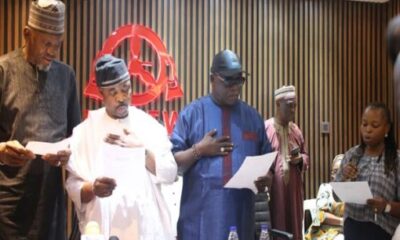
 BIG STORY4 days ago
BIG STORY4 days ago




